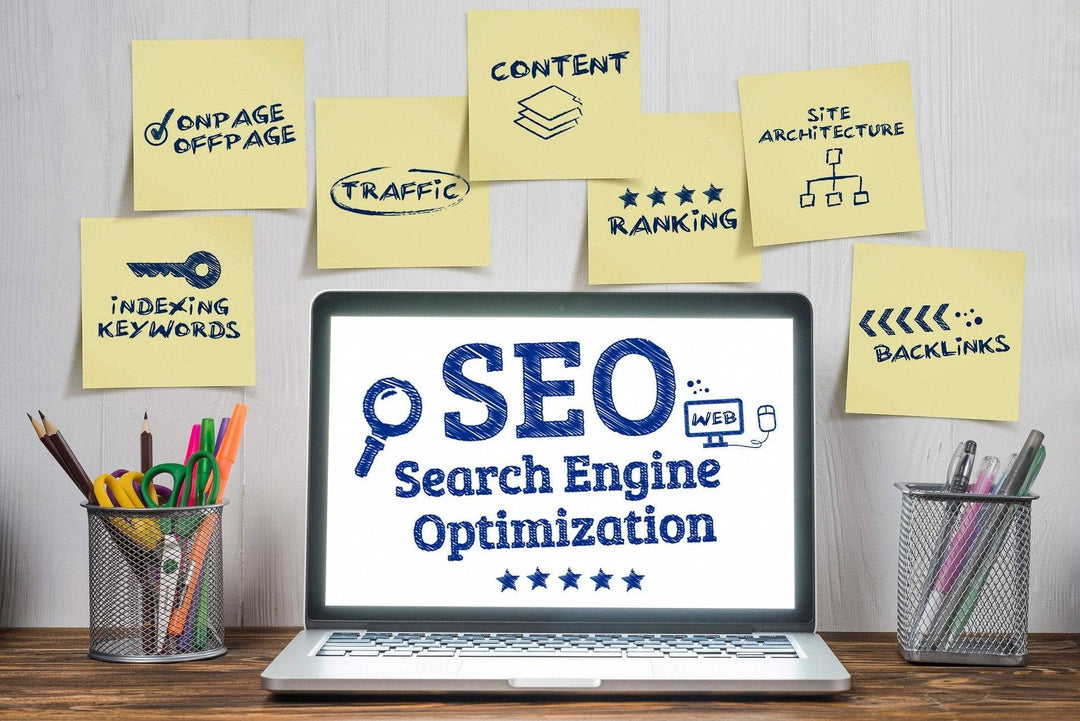Frequently Asked Questions
1. What is the importance of scaling a Shopify business?
2. What key elements should be included in a digital marketing strategy for Shopify?
3. How can I optimize operations for growth in my Shopify business?
4. What strategies can help in fostering customer loyalty?
5. Why is data and analytics important for scaling a Shopify business?
Entering the e-commerce world with Shopify is an exciting adventure. However, as your business grows, scaling efficiently is crucial for sustained success. With a well-planned digital marketing strategy, you can streamline operations, enhance customer satisfaction, and ultimately drive more sales. In this article, we'll explore actionable tips for scaling your Shopify business effectively.
Understanding the Importance of Scaling
Scaling is more than just increasing sales; it involves expanding your operations, improving processes, and ensuring your business can handle growth seamlessly. Here’s why you should prioritize scaling:
- Maximize Efficiency: A focused digital marketing strategy and optimized workflows mean less wasted time and resources.
- Enhance Customer Experience: A scalable business model allows you to serve customers better and cater to their needs.
- Stay Competitive: Growth keeps you ahead of competitors and positions your brand as a leader in the market.
Crafting a Solid Digital Marketing Strategy
Your digital marketing strategy is the backbone of your growth plan. Here are key elements to include:
1. Define Your Target Audience
Understanding who your customers are is essential for tailoring your marketing efforts. Create buyer personas based on age, interests, shopping habits, and pain points. This insight will help you tailor your messaging and offerings effectively.
2. Leverage SEO
Optimizing your Shopify store for search engines can significantly increase visibility. Focus on:
- Keyword Research: Identify keywords like "Shopify," "e-commerce," and industry-related terms that your customers are searching for.
- On-Page SEO: Include keywords in product descriptions, blog posts, and meta tags to enhance relevance.
- Quality Content: Regularly publish engaging and informative content to attract organic traffic and establish authority.
3. Utilize Social Media
Social media platforms are powerful tools for engaging with customers. Here’s how to maximize your impact:
- Platform Selection: Choose platforms that align with your target audience. For example, Instagram and Pinterest may work well for visual brands.
- Content Strategy: Share a mix of promotional and valuable content, such as tips, guides, and user-generated content.
- Engagement: Respond to comments and messages promptly to foster community and loyalty.
4. Email Marketing
Email marketing remains a highly effective digital marketing strategy. To succeed, consider the following:
- Build Your List: Use pop-ups and discount offers to encourage sign-ups on your Shopify store.
- Segment Your Audience: Categorize subscribers based on behaviors and preferences for targeted campaigns.
- Personalization: Tailor email content to enhance relevance and engagement among subscribers.
Optimizing Operations for Growth
While marketing is essential, effective internal operations are just as critical for scaling your Shopify business. Here are tips for optimizing operations:
1. Automate Repetitive Tasks
Automation tools can save time and reduce errors in your daily tasks. Look into:
- Inventory Management: Use apps that sync your inventory across platforms to avoid stock issues.
- Customer Support: Implement chatbots to handle FAQs and improve response times.
- Email Campaigns: Automate follow-up emails to nurture leads and manage customer relations.
2. Streamline Your Supply Chain
Scaling requires reliable suppliers and efficient logistics. Consider the following:
- Supplier Relationships: Maintain good relationships with suppliers for better terms and reliable service.
- Shipping Options: Offer multiple shipping options to meet diverse customer needs.
- Inventory Levels: Keep a close eye on inventory to ensure you can meet demand without overstocking.
3. Enhance User Experience
A seamless user experience can significantly impact your conversion rates. Here are ways to ensure this:
- Website Speed: Optimize your Shopify store for faster loading times to reduce cart abandonment.
- Mobile Optimization: Ensure your store is fully responsive and easy to navigate on mobile devices.
- Clear Navigation: Simplify your menu and make it easy for customers to find products.
Investing in Your Team
Your team is the backbone of your business. Investing in training, motivation, and team dynamics can lead to efficient scaling:
1. Provide Training and Development
Keep your team updated with industry knowledge and skills through training programs. This can enhance productivity and innovation.
2. Encourage Feedback and Open Communication
Fostering a feedback-friendly workplace can lead to new ideas for improvement. Encourage team members to share their insights and suggestions.

3. Hire Strategically
As you grow, hiring the right talent is essential. Look for individuals who align with your company's goals and culture, as this can contribute greatly to cohesive growth.
Leveraging Data and Analytics
Data-driven decision-making is vital for scaling your Shopify business. Here’s how you can leverage analytics:
1. Track Key Performance Indicators (KPIs)
Identify and monitor KPIs relevant to your business goals. Consider metrics such as:
- Conversion Rate
- Customer Acquisition Cost
- Average Order Value
- Customer Retention Rate
2. Analyze Customer Behavior
Use data analytics tools to understand how customers interact with your store. Insights can guide your marketing strategy, product offerings, and pricing adjustments.
3. Test and Iterate
Don’t be afraid to experiment with new strategies. A/B testing can provide insights into what works best, from marketing messages to website design elements.
Fostering Customer Loyalty
Loyal customers can provide a steady stream of income as you scale. Retaining customers is often more cost-effective than acquiring new ones. Here’s how to build loyalty:
1. Loyalty Programs
Implementing a loyalty program can encourage repeat purchases. Offer rewards like discounts or exclusive access to sales for frequent shoppers.
2. Request Reviews and Feedback
Encourage customers to leave reviews after purchasing. Positive reviews enhance credibility and attract new customers, while constructive feedback can help improve your offerings.
3. Personal Touch
Send personalized messages on special occasions, such as birthdays or anniversaries, to strengthen your connection with customers.
Embracing Change and Innovation
As your Shopify business grows, the e-commerce landscape will keep evolving. Staying adaptive is crucial.
1. Keep Up with Industry Trends
Regularly research market trends and consumer behavior to identify opportunities for innovation and improvement.
2. Explore New Technologies
Adopting new technologies can streamline operations and improve customer experiences. Stay open to integrating AI, AR, or other emerging technologies.
3. Diversify Your Product Range
Consider broadening your product range based on customer demand or trends. Ensure that new offerings align with your brand values and appeal to your target audience.
Seize the Future of Your Shopify Business
Scaling your Shopify business requires strategic planning and execution. By focusing on a robust digital marketing strategy, optimizing operations, fostering loyalty, and adapting to change, your e-commerce store can thrive in a competitive market. Remember, growth doesn’t happen overnight, but with patience and diligence, your Shopify journey can lead to incredible success. Embrace these tips, and watch your business soar!






Leave a comment